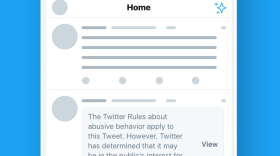
Aarti Shahani
Aarti Shahani is a correspondent for NPR. Based in Silicon Valley, she covers the biggest companies on earth. She is also an author. Her first book, Here We Are: American Dreams, American Nightmares (out Oct. 1, 2019), is about the extreme ups and downs her family encountered as immigrants in the U.S. Before journalism, Shahani was a community organizer in her native New York City, helping prisoners and families facing deportation. Even if it looks like she keeps changing careers, she's always doing the same thing: telling stories that matter.
Shahani has received awards from the Society of Professional Journalists, a regional Edward R. Murrow Award and an Investigative Reporters & Editors Award. Her activism was honored by the Union Square Awards and Legal Aid Society. She received a master's in public policy from Harvard's Kennedy School of Government, with generous support from the University and the Paul & Daisy Soros fellowship. She has a bachelor's degree from the University of Chicago. She is an alumna of A Better Chance, Inc.
Shahani grew up in Flushing, Queens — in one of the most diverse ZIP codes in the country.
-
Brad Smith says governments need to step in and set rules for the Internet giants. "Almost no technology has gone so entirely unregulated, for so long, as digital technology," he says.
-
The top legal officials of 48 states, led by Texas Republican Attorney General Ken Paxton, announced a major investigation into Google's dominance in search and advertising.
-
The move in Europe to get tough on tech is partly thanks to an awakening that began with the experiences of women in politics.
-
Regulators missed a chance to find out if deceptive practices at Facebook came from the top when they decided to enter into a settlement with Zuckerberg instead of questioning him, an FTC member says.
-
The FTC and Facebook entered a new settlement over privacy violations. CEO Mark Zuckerberg must give quarterly progress reports directly to regulators. Facebook must also pay a $5 billion fine.
-
Under a settlement with the Federal Trade Commission, the company will pay $5 billion and its co-founder could be subject to penalties if Facebook doesn't comply with the agreement.
-
Lawmakers in the Senate and House are questioning lobbyists and officials from Facebook, Google, Amazon and Apple on an array of issues, including whether they're so big they stifle competition.
-
Twitter won't delete the tweets of politicians that are bullying or derogatory, but it will label them. The service has been criticized for its handling of tweets posted by President Trump and others.
-
Facebook banned far-right extremist Alex Jones. But it won't remove from the platform the warlord Lt. Gen. Mohamed Hamdan Dagalo, even though he oversaw the killing of more than 100 people in Sudan.
-
Facebook says that by next year people on apps like Whatsapp and Messenger will be able to basically text payments. This news comes as regulators are asking if the tech giant is already too powerful.










